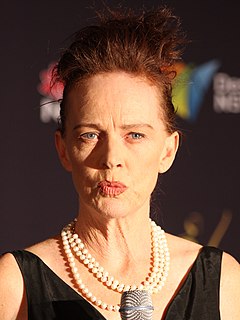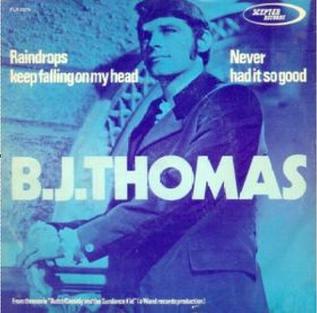Contents
- This is a list of Australian films of the 1970s. For a complete alphabetical list, see Category:Australian films .
An X rating is a rating used to classify movies that are meant for adults only.

The cinema of Australia had its beginnings with the 1906 production of The Story of the Kelly Gang, the earliest feature film ever made. Since then, Australian crews have produced many films, a number of which have received international recognition. Many actors and filmmakers started their careers in Australian films, many of whom have acquired international reputations, and a number of whom have found greater financial benefits in careers in larger film-producing centres, such as in the United States.

"Me and Bobby McGee" is a song written by American singer-songwriter Kris Kristofferson and originally performed by Roger Miller. Fred Foster shares the writing credit, as Kris Kristofferson intended. A posthumously released version by Janis Joplin topped the U.S. singles chart in 1971, making the song the second posthumously released No. 1 single in U.S. chart history after "(Sittin' On) The Dock of the Bay" by Otis Redding. Jerry Lee Lewis also released a version reaching number 1 on the country charts in 1971. Billboard ranked Joplin's version as the No. 11 song for 1971.

Bruce Beresford is an Australian film director who has made more than 30 feature films over a 50-year career. Notable films he has directed include Breaker Morant (1980), Tender Mercies (1983), Crimes of the Heart (1986) and the multiple Academy Award winning Driving Miss Daisy (1989).

American singer-songwriter Bob Dylan has released 39 studio albums, 95 singles, 17 notable extended plays, 54 music videos, 15 live albums, 16 volumes comprising The Bootleg Series, 29 compilation albums, 22 box sets, seven soundtracks as main contributor, thirteen music home videos and two non-music home videos. Dylan has been the subject of seven documentaries, starred in three theatrical films, appeared in an additional eight films and 10 home videos, and is the subject of the semi-biographical tribute film I'm Not There. He has written and published lyrics, artwork and memoirs in 11 books and three of his songs have been made into children's books. He has done numerous collaborations, appearances and tribute albums. The albums Planet Waves and Before the Flood were initially released on Asylum Records; reissues of those two and all others were on Columbia Records.
Ryan may refer to:
This is an index of lists of films by year, awards, countries of origin and genre among other factors.

"The Morning After" is a song written by Al Kasha and Joel Hirschhorn for the 1972 film The Poseidon Adventure, winning Best Original Song at the 45th Academy Awards. Following this success, Maureen McGovern recorded a single version that became a No. 1 hit in the US for two weeks during August 1973, with Gold record sales. Billboard ranked it as the No. 28 song for 1973.

Phillip Noyce is an Australian director, producer, and screenwriter of film and television. Since 1977, he has directed over 19 feature films in various genres, including historical drama, thrillers, and action films. He has also directed the Jack Ryan adaptations Patriot Games (1992) and Clear and Present Danger (1994) and the 2014 adaptation of Lois Lowry's The Giver.
The Australian New Wave was an era of resurgence in worldwide popularity of Australian cinema, particularly in the United States. It began in the early 1970s and lasted until the mid-late 1980s. The era also marked the emergence of Ozploitation, a film genre characterised by the exploitation of colloquial Australian culture.
The AACTA Award for Best Film is an award presented by the Australian Academy of Cinema and Television Arts (AACTA), a non-profit organisation whose aim is to "identify, award, promote, and celebrate Australia's greatest achievements in film and television". The award is presented at the annual AACTA Awards, which hand out accolades for achievements in feature film, television, documentaries and short films. From 1969 to 2010, the category was presented by the Australian Film Institute (AFI), the Academy's parent organisation, at the annual Australian Film Institute Awards. When the AFI launched the Academy in 2011, it changed the annual ceremony to the AACTA Awards, with the current award being a continuum of the AFI Award for Best Film.
The AACTA Award for Best Direction is an award presented by the Australian Academy of Cinema and Television Arts (AACTA), a non-profit organisation whose aim is to "identify, award, promote and celebrate Australia's greatest achievements in film and television." The award is presented at the annual AACTA Awards, which hand out accolades for achievements in feature film, television, documentaries and short films.

The AACTA Award for Best Actress in a Leading Role is an award presented by the Australian Academy of Cinema and Television Arts (AACTA), a non-profit organisation whose aim is to "identify, award, promote, and celebrate Australia's greatest achievements in film and television".
The Australian Film Institute Award for Best Screenplay was an award presented intermittently by the Australian Film Institute (AFI), for an Australian screenplay written directly for the screen or based on previously released or published material. It was handed out at the Australian Film Institute Awards, which are now the AACTA Awards after the establishment of the Australian Academy of Cinema and Television Arts (AACTA), by the AFI. The award was handed out from 1975-1977, 1980-1982, 1990-1992, and again in 2007; two separate awards were created for "Best Adapted Screenplay" and "Best Original Screenplay" and have been presented intermittently from 1978-1979, 1983-1989, 1993-2006, and then from 2008, onwards. The award was first presented at the 1974-75 awards as a film prize which included a cash reward of $A1000.
The AACTA Award for Best Cinematography is an award presented by the Australian Academy of Cinema and Television Arts (AACTA), a non-profit organisation whose aim is to "identify, award, promote and celebrate Australia's greatest achievements in film and television." The award is presented at the annual AACTA Awards, which hand out accolades for achievements in feature film, television, documentaries and short films. From 1976 to 2010, the category was presented by the Australian Film Institute (AFI), the Academy's parent organisation, at the annual Australian Film Institute Awards. When the AFI launched the Academy in 2011, it changed the annual ceremony to the AACTA Awards, with the current award being a continuum of the AFI Award for Best Cinematography.
The AACTA Award for Best Costume Design is an accolade given by the Australian Academy of Cinema and Television Arts (AACTA), a non-profit organisation whose aim is to "identify, award, promote and celebrate Australia's greatest achievements in film and television." The award is handed out at the annual AACTA Awards, which rewards achievements in feature film, television, documentaries and short films. From 1977 to 2010, the category was presented by the Australian Film Institute (AFI), the Academy's parent organisation, at the annual Australian Film Institute Awards. When the AFI launched the Academy in 2011, it changed the annual ceremony to the AACTA Awards, with the current prize being a continuum of the AFI Award for Best Costume Design. Terry Ryan has received the most awards in this category with five.

Adam's Woman is a 1970 Australian-American historical drama film directed by Philip Leacock and starring Beau Bridges, Jane Merrow and John Mills. It has been called a "convict Western".

"Raindrops Keep Fallin' on My Head" is a song written by Burt Bacharach and Hal David for the 1969 film Butch Cassidy and the Sundance Kid. The uplifting lyrics describe somebody who overcomes his troubles and worries by realizing that "it won't be long 'till happiness steps up to greet me."

Australian Western, also known as Meat Pie Western or Kangaroo Western, is a broad genre of Western-style films or TV series set in the Australian outback or "the bush". Films about bushrangers are included in this genre. Some films categorised as meat-pie or Australian Westerns also fulfil the criteria for other genres, such as drama, revisionist Western, crime or thriller.